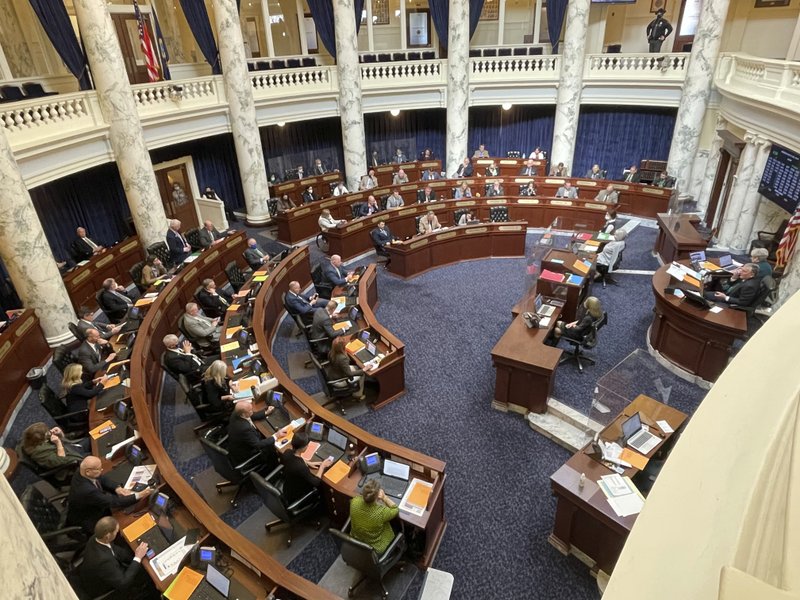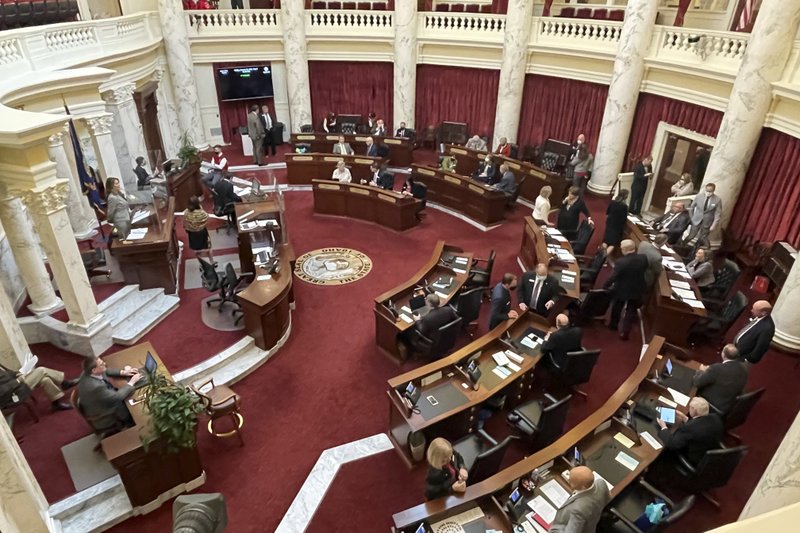
Idaho Voters Will Decide Next Year Whether State Lawmakers Can Call Themselves Into Special Session
BY KEITH RIDLER / AP
Voters will get the chance to decide whether lawmakers in the part-time Idaho Legislature will be able to call special sessions, a power currently limited to governors.
The House voted 54-15 on Tuesday to clear the two-thirds threshold needed for proposed constitutional amendments. The resolution has already passed the Senate.
The measure will go before voters in November 2022, needing a simple majority.
The Idaho Legislature typically meets from January through March before adjourning for the rest of the year. Backers said the Legislature isn’t an equal branch of government without the power to call itself back into session. Opponents said that allowing lawmakers to call special sessions could lead to the Legislature becoming full-time.

File photo. Idaho Senate gathers in the Statehouse in Boise on January 15, 2021. A Senate panel of lawmakers has approved a constitutional amendment allowing the part-time Idaho Legislature to call itself into a special session. The panel also on Wednesday, Feb. 17, 2021, approved companion legislation that would create the legal process to make that happen. CREDIT: Keith Ridler/AP
If voters approve, the Legislature could call itself back into session if 60% of lawmakers in each the House and Senate agree. The special session would be limited to specific topics agreed to by lawmakers before the special sessions.
Republican Rep. Jason Monks during debate on the House floor said lawmakers once in a special session could also consider additional topics if 60% of the House and Senate members agreed. Based on the joint resolution’s language, that would appear to have the effect of creating another special session to address a new topic.
“Whether you want to argue that we are an equal branch or non-equal branch of government, we are certainly less than equal if we don’t have the ability to call ourselves back in,” Monks said. “If we’re limited to only being able to function within a short period of time throughout the year, I don’t see how you could even argue that we’re equal.”
The current Legislature reached its 100th day on Tuesday, the third-longest legislative session in state history going back to 1890. But that includes a two-week recess because of an outbreak of COVID-19 among mostly Republican House members, who rarely wear masks.
Democratic Rep. Colin Nash noted the lengthy session in arguing against the measure.
“We’re 100 days into the Legislative session, and we’re contemplating legislation that would bring us back,” he said. “I just don’t think that’s appropriate. I did not sign up for this to be part of a full-time Legislature.”
But Monks argued that lawmakers having the ability to call special sessions could lead to shorter sessions because lawmakers wouldn’t be as concerned they would be powerless to take action once they adjourned the session.
The legislation stems from lawmaker dissatisfaction with a temporary lockdown and other restrictions that Republican Gov. Brad Little put in place last March to reduce coronavirus infections and deaths. The Republican-dominated Legislature had adjourned for the year by then and was powerless to do anything.
Lawmakers also say they should have had a role in spending $1.25 billion in federal coronavirus rescue money received early last year.
The current legislature is considering not adjourning for the year but simply going into recess so it could return and help decide how to spend the latest round of federal coronavirus rescue money, or consider other issues.
A joint resolution that passes both the House and Senate with a two-thirds majority does not need a governor’s signature, but instead goes to voters as a possible amendment to the Idaho Constitution.
Copyright 2021 Associated Press















